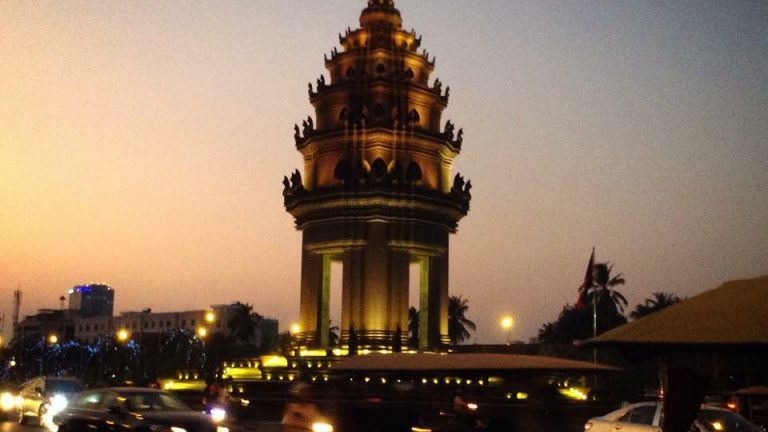
Before volunteering with IVHQ please read my experience working with them in Cambodia. Here are nine things I wish I knew before volunteering/interning with IVHQ.
By: Hannah Reid
In 2014, I decided I wanted to spend my summer doing an internship in Cambodia with IVHQ. Given my background in law and experience in human rights outreach campaigns, I was looking for an internship that would give me the kind of work experience that I mistakenly thought I needed. My peers were all taking positions at top law firms in our home city, Auckland, New Zealand, for the summer, but I wanted something different. I wanted to help people.
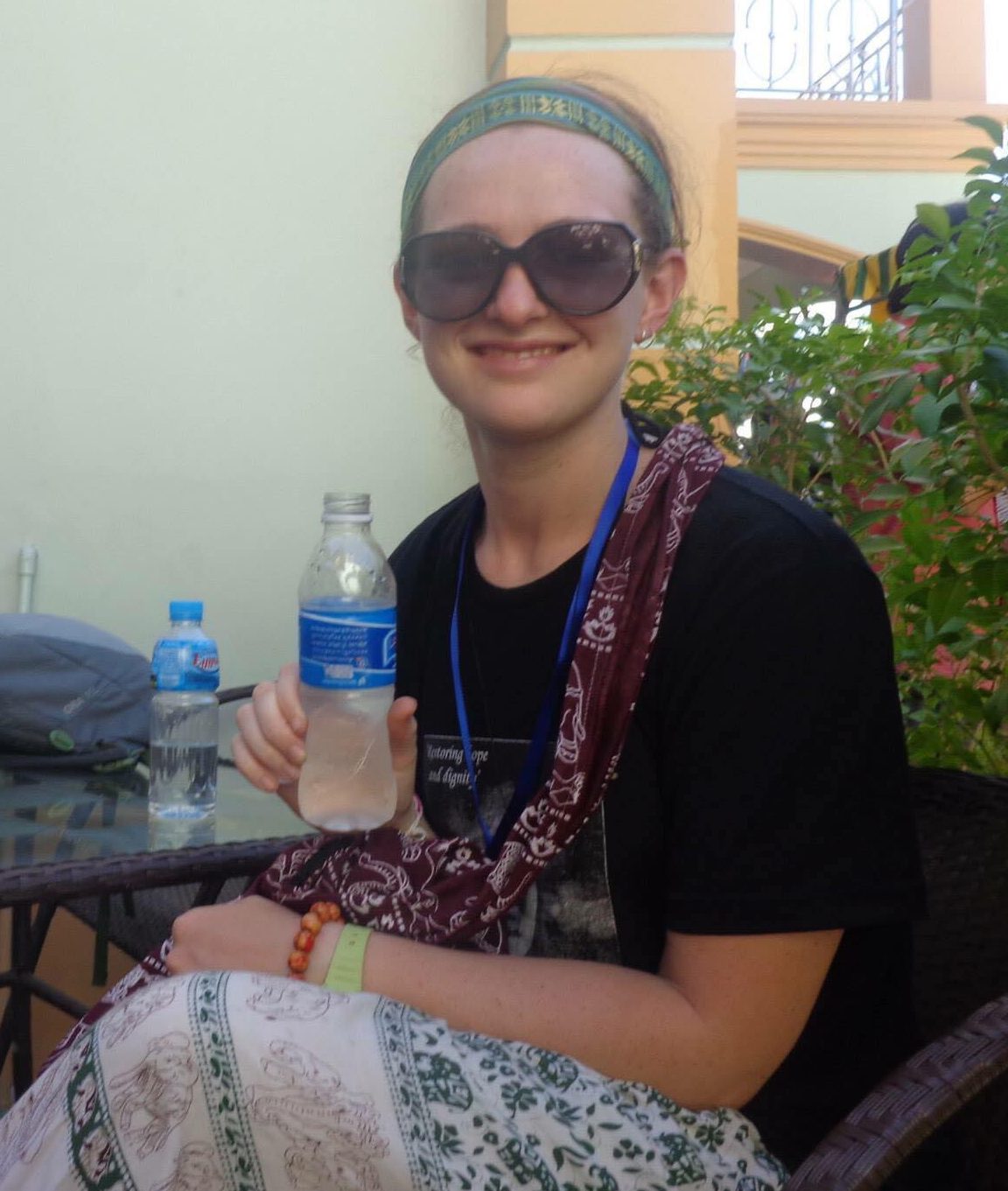
Hannah Reid
I came across IVHQ online. It seemed like a reputable organisation and it was based in New Zealand, so I assumed it was legitimate. The IVHQ website offers a ‘Working with NGOs’ program in Cambodia. The description of the program included the following details:
A. IVHQ’s partner organization in Cambodia cooperates with a network of over 40 local NGOs with volunteer placements available in the following fields: community development, human rights, health and HIV/AIDS awareness, gender issues, environmental issues, and education. B. These NGOs require volunteer support, primarily in fundraising and proposal writing, organizational development, administration and research. C. Volunteers work between 3 and 8 hours per day. D. If a volunteer’s program duration is less than 2 months, the main tasks will involve applying English skills to assist at the NGO.”
This sounded like a program I was interested in. By this point, I thought I was pretty clued up and knew to stay away from orphanages and childcare volunteering placements. Even though IVHQ also placed volunteers in orphanages, I told myself I was going on a different program so I was not contributing to the harmful and exploitative business of orphanages, which is so prevalent in Cambodia.
RELATED: An honest look at IVHQ in Kenya and why volunteers should avoid them
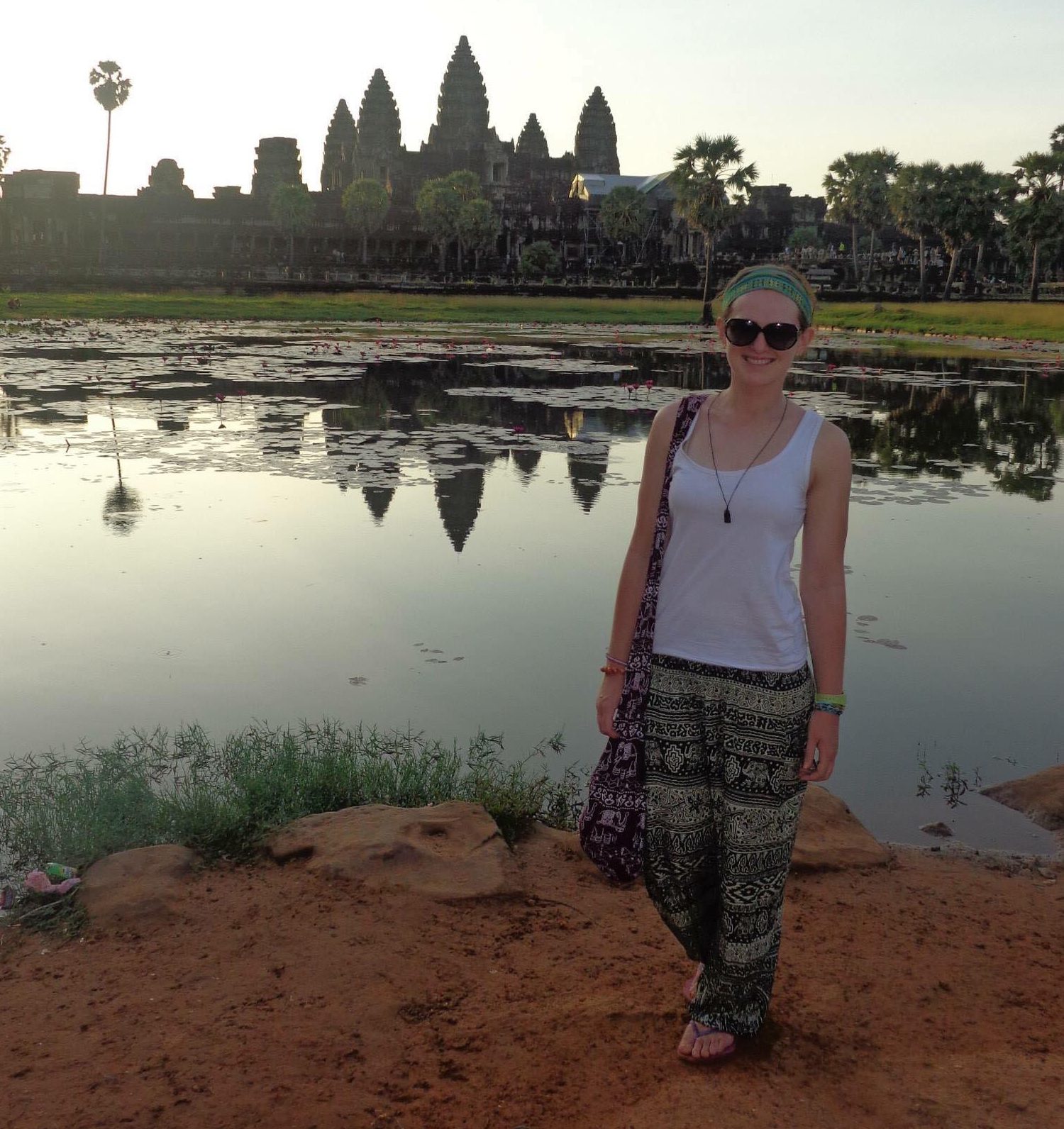
Hannah Reid
My first impressions were: This is great! There is a minimum duration for the NGO program, it is considered an internship, there will be a variety of NGOs I could be sent to, I cannot find a bad word said about IVHQ online, and the program fee is so cheap that it could only be to cover our necessary costs!
I phoned IVHQ and asked to speak with the coordinator of the Cambodia programs. I asked for some names of the 40 local NGOs, so that I could check them out online and get a sense of the type of work I could be doing. She couldn’t give me any. Why? I decided to risk it and book the trip. I’m sure it will be fine.
RELATED: Why I don't Recommend Volunteering with Frontier in Fiji
A few days before I was due to arrive in Cambodia, I was told that I would be placed at a women’s rights NGO in Siem Reap called Rachna Satrei. I looked up the NGO and the website says that the organisation:
“strives to reduce all forms of violence and discrimination towards women, children, and the disabled by improving their social and economic situation through education, advocacy, and community development projects, while promoting their rights in the wider community. Rachna Satrei also strives to ensure that disadvantaged groups in Cambodia are aware of their rights and have the opportunity and freedom to participate equally in all aspects of society.”
This sounded like just the place for me! Their goals seem very broad, but they’re probably just ambitious.
RELATED: Beware of Frontier
I was convinced I had done my due diligence. I was convinced I was going to Cambodia to use my skills to help others. I was convinced I was doing the right thing, an admirable thing. Here are 9 things I wish somebody had told me before getting on the plane to Cambodia.
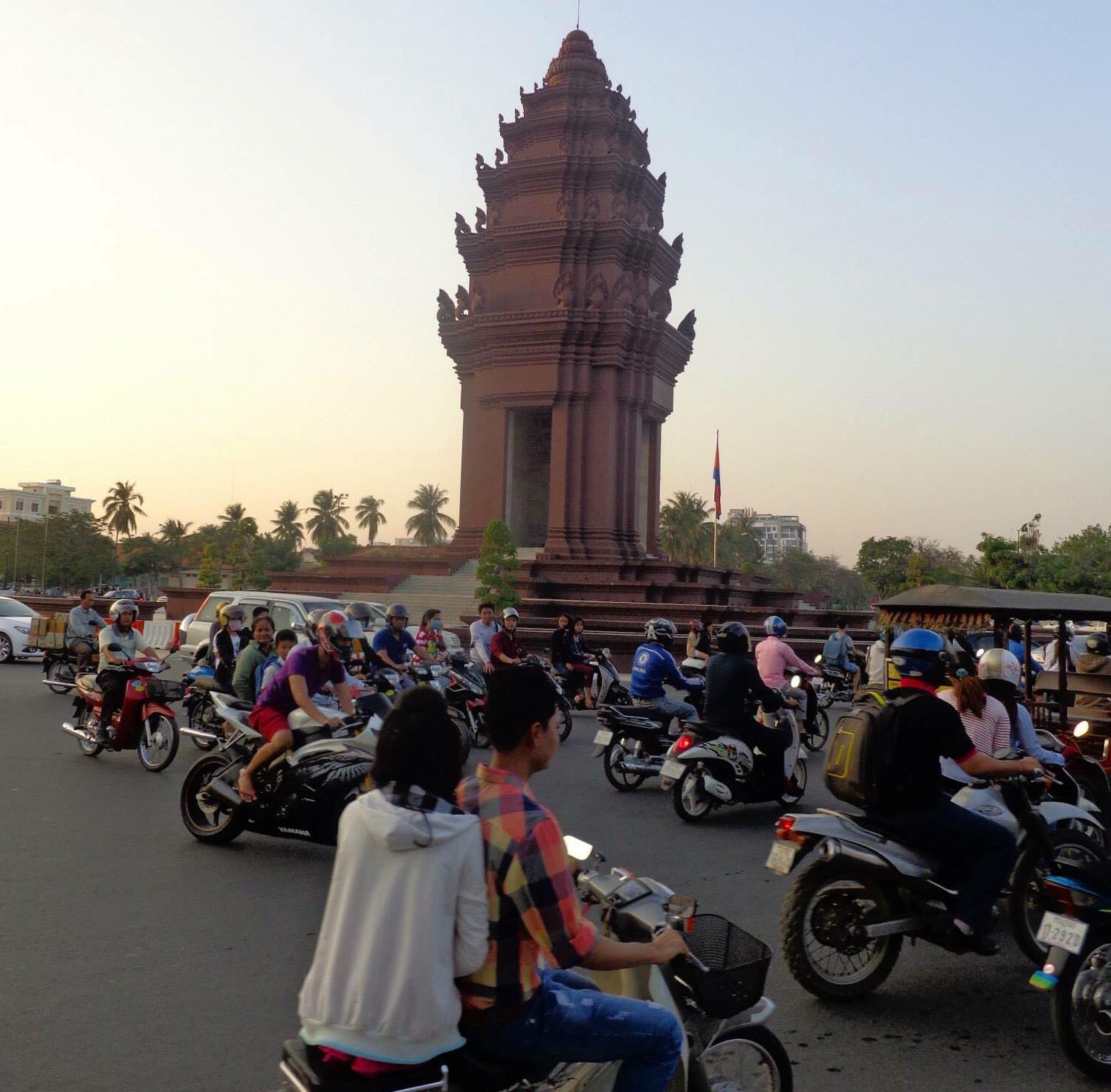
Photo by: Hannah Reid
ONE: IVHQ is an umbrella organisation disconnected from what happens on the ground
There were a number of things that concerned me about the Phnom Penh “orientation” days that every IVHQ volunteer must participate in. The first thing that struck me was the instant switch of control and administration once volunteers arrive in Cambodia. The in-country partner, Cambodia Volunteer Foundation (“CVF”), was suddenly in control of everything.
There were between 50 and 100 volunteers starting on the same day as me. Due to this huge number, we couldn’t all fit in the CVF housing in Phnom Penh. About 15 of us were put into a hostel called something like Green Mango. I immediately noticed extremely young looking Cambodian women walking in and out of a door behind the reception, upstairs. Walking to our room, several other room doors were open and there were just mattresses on the floors. The rooms could be rented for just one hour at a time. This was where we spent 2 nights. Is it just me, or does this place seem a bit dodgy?
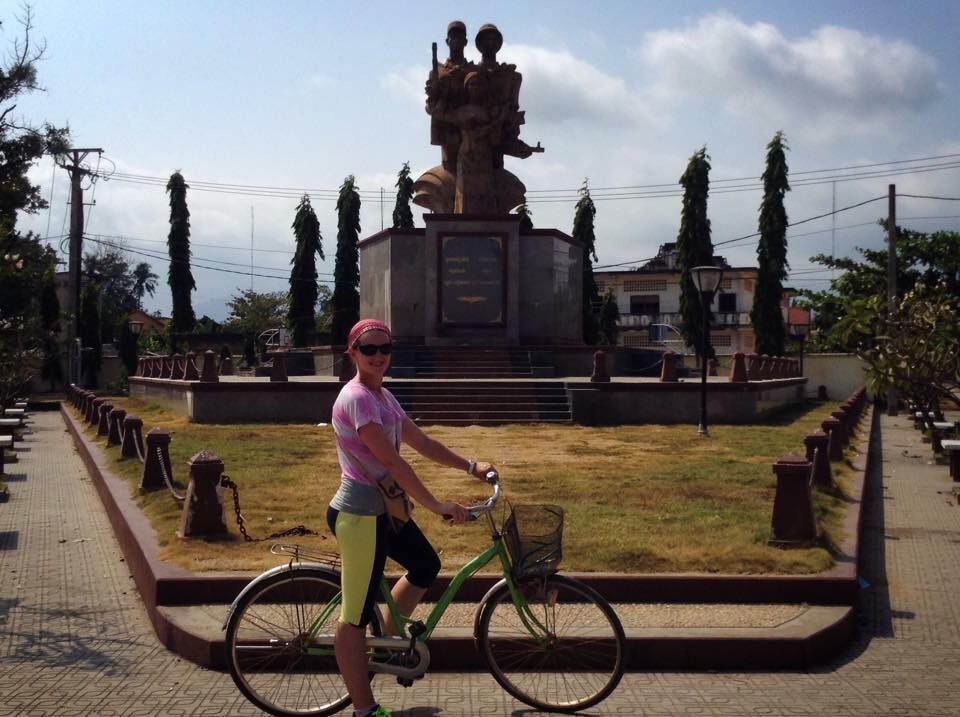
Hannah Reid
During the orientation, we were taught about Khmer culture. We were told to “have an open mind” because things “never go according to plan in Cambodia”. We were then made to sign a volunteer rules document, which featured statements such as “I will have an open mind and not have high expectations” and “I will not complain about anything” which, with my legal background, I was reluctant to sign my name to. Why are they getting us to sign things like this?
Before arriving in Cambodia, volunteers can tell IVHQ their preferences for the city in Cambodia they wish to be placed in. We were also asked for details of our travel history and experience. Dozens of volunteers were disappointed and extremely stressed upon hearing their placement details at the end of the orientation. I was placed in Siem Reap, alongside other volunteers who had plenty of travel experience. Some volunteers, mostly aged 18, were travelling abroad for the first time and were placed in the provinces without any other volunteers. Several of them were stressed and disappointed. Why are volunteers not allowed to know in advance where in the country they will be situated for their weeks or months abroad?
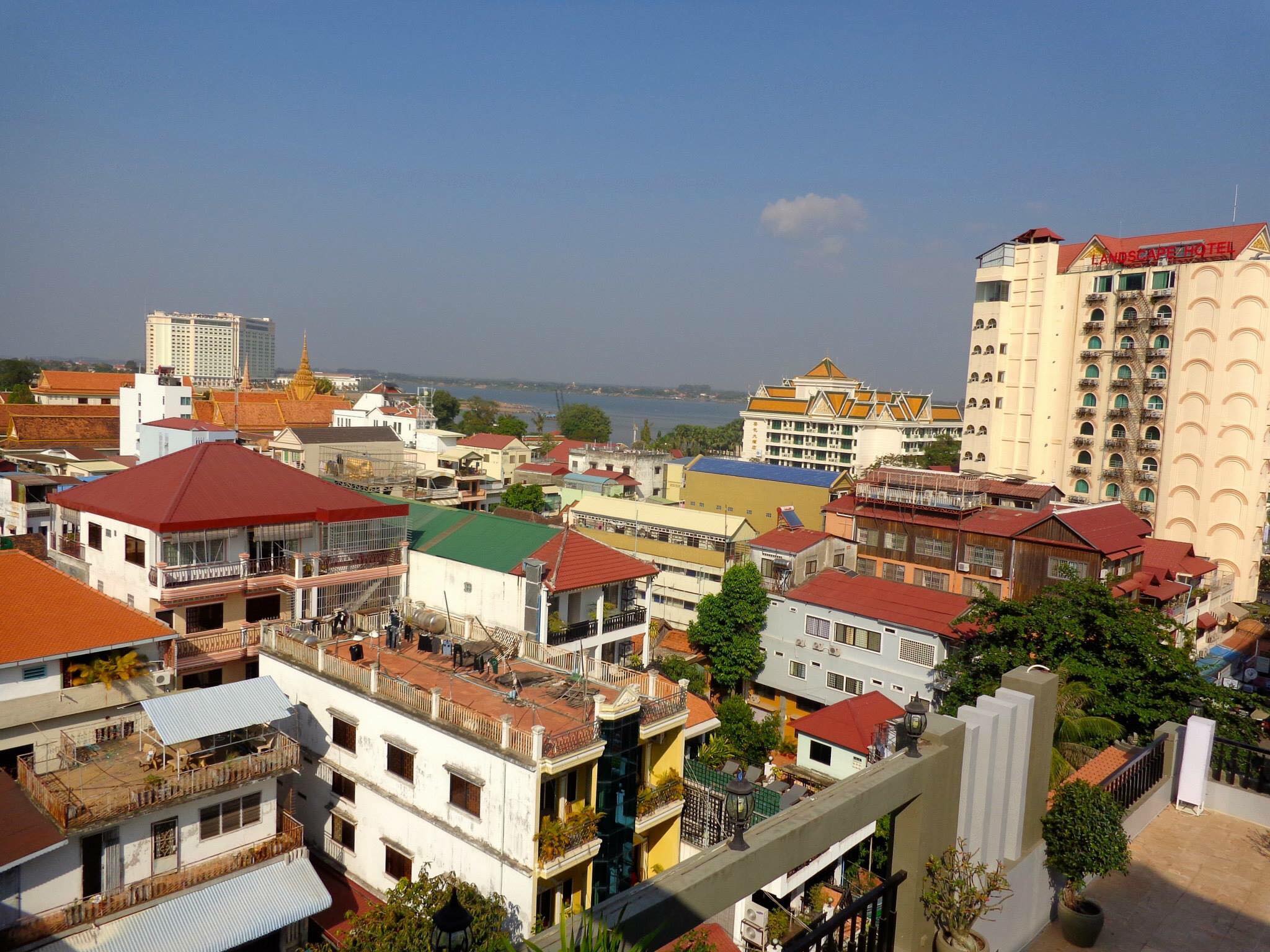 '
'
Photo by: Hannah Reid
I was also shocked to hear the CVF worker asking volunteers for criminal background checks before we were dismissed from the orientation. By this point, some volunteers in the teaching and “childcare” programs had already visited their placements. I would have expected criminal background checks to be required before even confirming a volunteer’s ability to undertake this kind of volunteer work. Dozens of the volunteers were visiting the placements without CVF having seen their criminal background checks. I thought IVHQ required background checks from prospective volunteers before confirming their placements, this seems odd and unsafe.
TWO: Not all NGOs are what they seem
After arriving in Siem Reap, I found out that my placement, Rachna Satrei, was next door to the volunteer house. How convenient. There were three other volunteers in Siem Reap doing the NGO program. Two of them were also placed at Rachna Satrei, and one was placed at a “community development” NGO outside of Siem Reap. I found it interesting that IVHQ claimed to have a network of 40 local NGOs, yet three out of four NGO volunteers were placed in one NGO, which happened to be next-door to the CVF volunteer house.
For the first two days, the other volunteers went off to their teaching and “childcare” placements. We were told Rachna Satrei had nothing for us to do. The volunteer placed at the community development NGO sat at the NGO building for a few hours, not doing anything, and the NGO staff then told her to “go visit an orphanage or something”.
We eventually were called over to Rachna Satrei to meet the director, Maly. We told her a bit about ourselves and our backgrounds. She told us that our daily task would be to teach English to some kids at a school her friend owned. Informing her that teaching English to kids was not what we signed up for (or were qualified to do) she told us that for one hour each day, we would teach English to her three staff members. That meant giving a private English lesson each day. I told her about New Hope Cambodia, which would provide free English lessons every day, taught by qualified local teachers, but she was not interested. This was not what I signed up for. I am not a qualified English teacher.
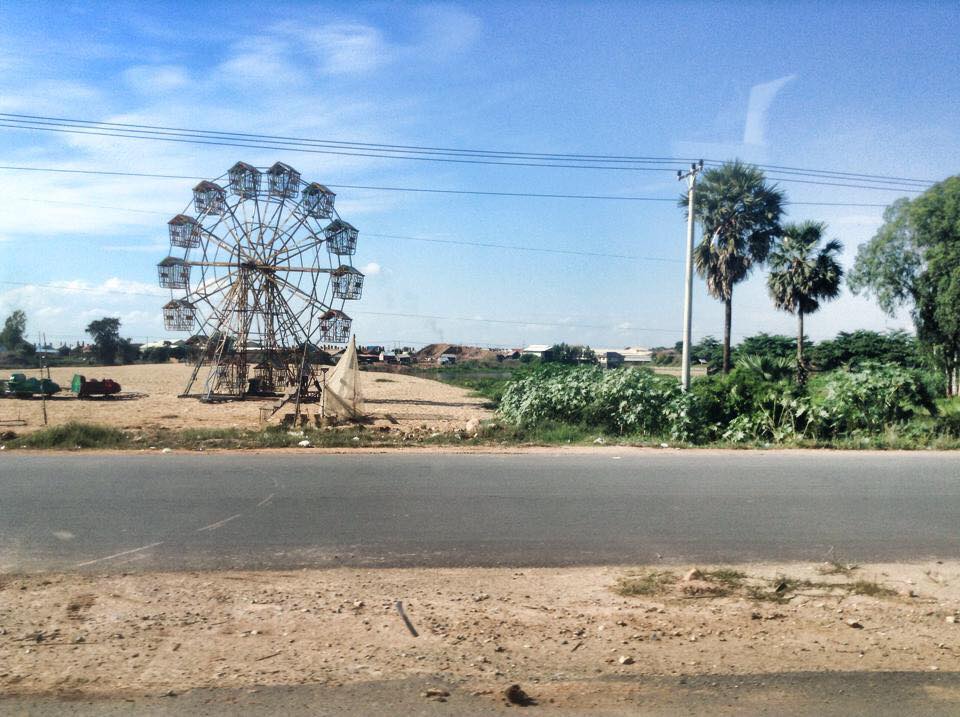
Photo by: Hannah Reid
I had heard about the NGO “business” in Cambodia. Each NGO really is a “business”. I could not help but wonder why our NGO director wanted us to find her donations from abroad, yet she had a two-storey house next door to our volunteer house, a high quality smartphone and drove a big black SUV. On the fourth day, Maly invited us to attend an “NGO conference” with her, which featured hundreds of very well-dressed NGO directors, alongside government officials, showing up in their large cars to listen to a panel talk and enjoy the several generous buffet meals throughout the day.
I have been to Cambodia three times and I have never seen such a collection of wealth in one room before. I have no doubt that many NGOs in Cambodia do good work, but many are as corrupt as the Cambodian government and view Cambodia’s development needs as a business opportunity.
THREE: There is a concerning lack of transparency
I found it difficult to find any information online about the breakdown of IVHQ fees. Exactly how much of our program fees was being spent on our food and accommodation? Where was the rest of the money going? How come there were several spare rooms in the volunteer house, yet all of the volunteers had to share bedrooms? Why did we have to put all used toilet paper in bins in our bathrooms which were only collected once a week, when the program fee was far more expensive than nearby guesthouses with far better hygiene standards?

Photo by: Hannah Reid
Something strange happened on the third day in Siem Reap. The CVF director arrived at the volunteer house with two very young Cambodian girls. He sat them at our table, panicked, and started giving the girls our food. We asked the CVF director who the girls were and he replied that they had been trafficked and that he had just rescued them from the side of the road. What?!
The CVF director said that he had to take the CVF van and drive the girls back to Phnom Penh. When we asked another CVF worker what was going on, he said he had no idea and he didn’t know what ‘trafficking’ was. How can you not know what human trafficking is?
Another CVF worker said the girls had come to visit Angkor Wat and just needed a lift home. Why are we getting conflicting stories?
Were these girls victims of human trafficking? If so, there were plenty of safe houses in the Siem Reap area with the protection and services that these girls needed. Bringing them to the volunteer house seemed unsafe for both the girls and for us. Were these girls just needing a lift home from Angkor Wat? If so, why were they eating our food and why would the CVF director lie to us? The lack of information was alarming and frustrating.
FOUR: IVHQ “placements” are not audited by IVHQ
Due to the lack of work I was given by the NGO, I had plenty of time to sit in the volunteer house and talk to the other volunteers about their placements. The more I learned, the more uneasy I felt.
The IVHQ website has a list of guidelines for selecting responsible childcare providers to partner with. One of those guidelines is that the placement requires background checks from volunteers and visitors. This is extremely important in Cambodia, where sexual abuse frequently occurs in childcare facilities open to foreign visitors.
One fellow volunteer was placed at Hannah’s Hope Orphanage. She told me that there was a Hungarian man volunteering at Hannah’s Hope who had simply “got to Siem Reap, got in a tuk tuk and said ‘take me to an orphanage’”. To the volunteer’s knowledge, he never provided a background check and had been there for weeks. How come these IVHQ placements take volunteers off the streets?
I looked up another IVHQ “childcare” placement (which are really orphanages filled mostly with children who have one or more living parent, but IVHQ calls them “childcare” placements to avoid associations with these dodgy orphanages), called the Home of Joy Orphanage. The orphanage website had a section called “Visit the Orphanage” with visiting hours and requested items for visitors to bring as gifts. There was no screening process for volunteers or visitors and no mention of background checks. Another IVHQ placement called KSEDO also invited tourists to visit their orphanage. Something doesn’t feel right here. These children are not tourist attractions, they’re vulnerable and at-risk children.
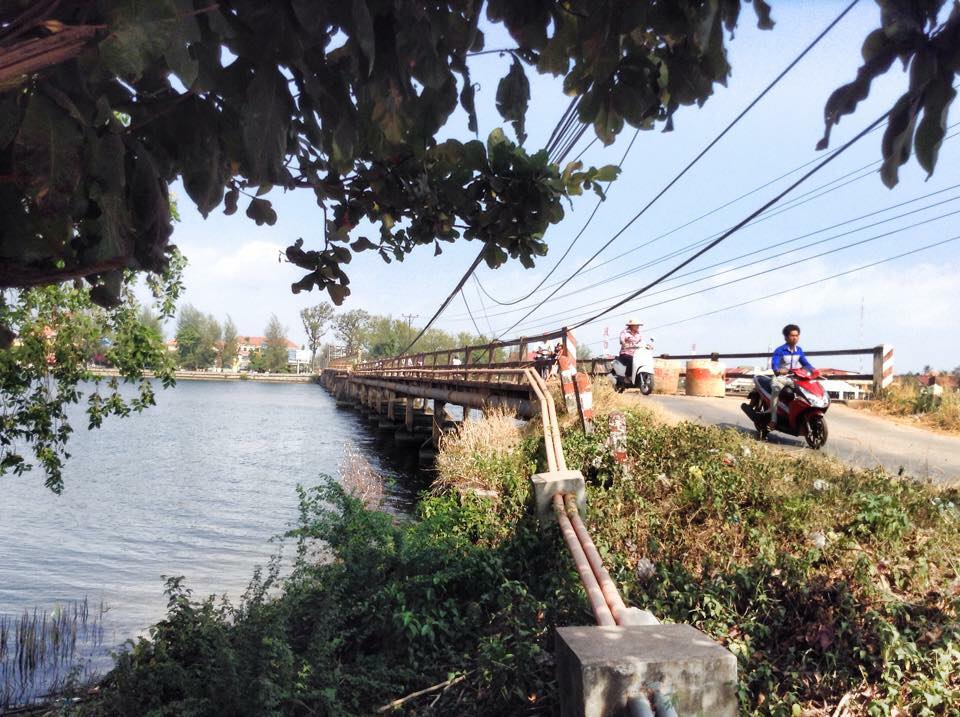
Photo by: Hannah Reid
The IVHQ website states that responsible childcare providers should “prevent child labour of any kind” and should not require the children to perform of “participate in public performance of any kind”.
Unbelievably, we had only been in Siem Reap for two days and were invited by an IVHQ volunteer to come and watch a performance put on by the children at their orphanage placement. It was an “orphanage-made exhibition and charity concert” featuring the children singing and dancing for the public. The orphanage used the public performance to plead for donations. These children are not circus performers, they’re vulnerable and at-risk children.
The poster on the orphanage website which advertised the charity concert was taken down after I complained to IVHQ.
I was extremely concerned that the individual IVHQ placements in Cambodia did not have any child protection policies. The placements clearly took on volunteers in addition to the volunteers placed there by CVF/IVHQ.
The volunteers told me their placements with children were completely unsupervised. The volunteers who signed up to the “teaching” program were left standing in front of classrooms of children when they did not speak any Khmer and had absolutely no teaching experience. Volunteers in the “childcare” program were left alone with children, sometimes disabled children, for hours at a time.
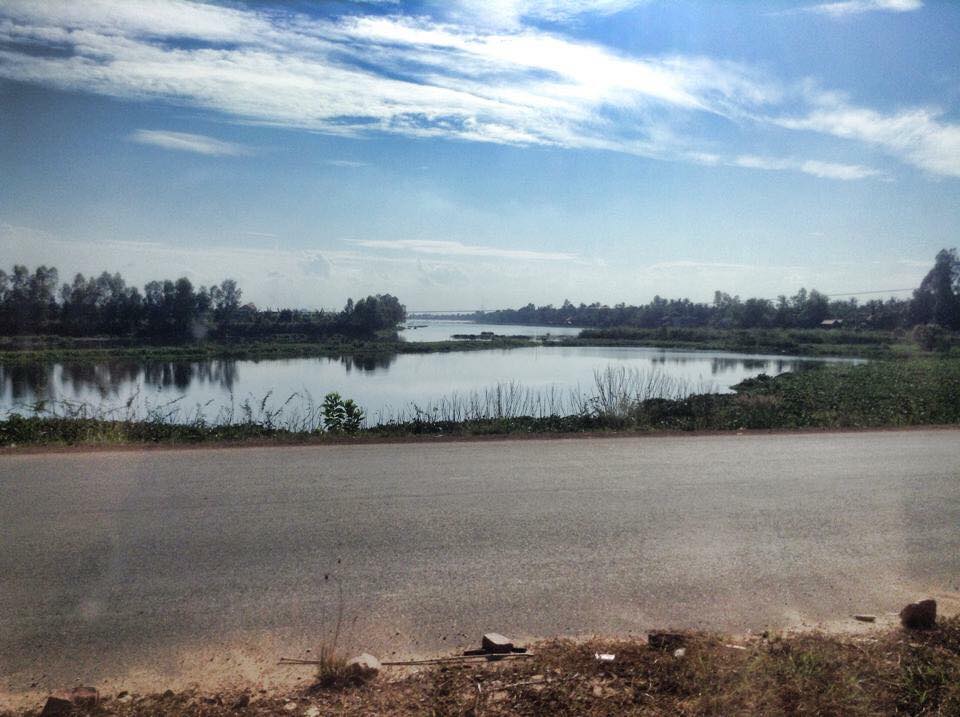
Photo by: Hannah Reid
When I eventually complained to IVHQ about this issue, IVHQ employee Ben Brown assured me that volunteer English teachers should always be assisting a local teacher. This is clearly not the case with what actually happens in volunteer placements in Cambodia.
Despite signing a CVF child protection policy during orientation, there were numerous instances of volunteers violating the photography rules. The IVHQ Code of Conduct clearly stated that “photography and videography of children is only permitted with permission from the placement staff and photos/videos should not be taken in any way intended to belittle or degrade any placement participant”.
Within days of being in Siem Reap, my Facebook newsfeed was inundated with photos uploaded by other IVHQ volunteers of “orphans” including one photo of a toddler being spoon fed with her top falling off. Photos had captions like “time to go back and play with the monkeys” and “hanging out with this little monkey at the orphanage #ivhq”. I should not have to explain how problematic this is. I highly doubt that each of these images were checked by the placement staff before being uploaded to Facebook.
If these volunteers were given permission to publicise these photos, IVHQ should stringently review its photography of children policy.
I have received information from IVHQ volunteers in other countries that IVHQ’s “audit” process consists of an IVHQ employee visiting the country, visiting one volunteer house, visiting a handful of placements and then drinking with the volunteers, all while making promotional videos for IVHQ’s social media accounts.
FIVE: You do not have the necessary qualifications or experience
A few years of university and a dash of enthusiasm does not qualify you to work with disadvantaged or vulnerable Cambodians. I wish somebody had been this blunt to me. If you think about vulnerable children, victims of domestic violence, persons with disabilities and other vulnerable individuals in your economically-developed home country, chances are that you would need qualifications, experience and specific training before accessing them or working to help them. There are minimum standards which our economically-developed countries have to protect vulnerable people and ensure that they get the standards of support and care that they need.
Volunteering or interning abroad circumvents these standards. If New Zealanders are entitled to have properly qualified teachers and social workers to assist them, so are Cambodians. If New Zealand children are given a good quality education by qualified teachers, Cambodian children should be given the same.
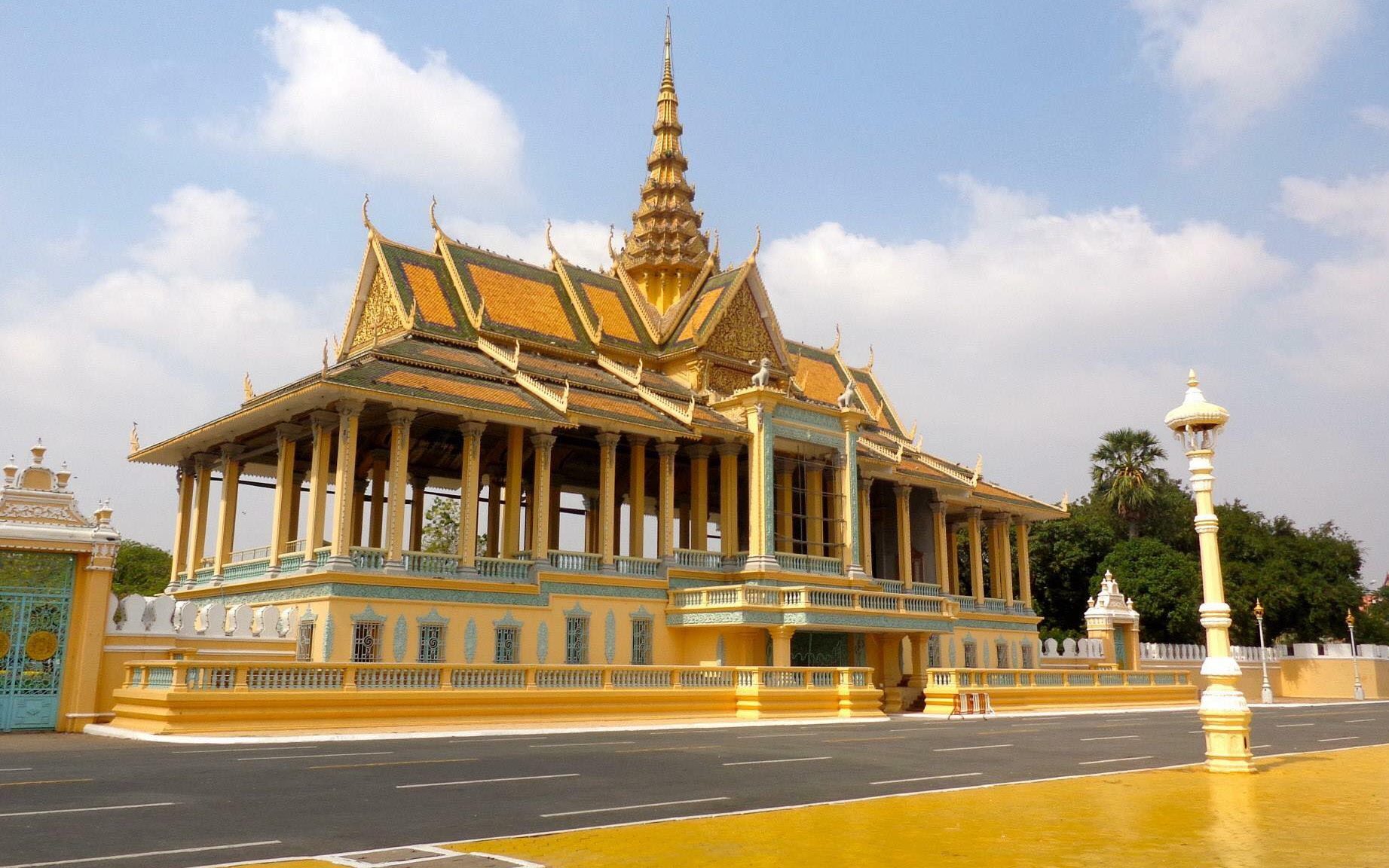
Photo by: Hannah Reid
While I was somewhat aware of these arguments, I had not applied them to my own situation. It was not until I got to Cambodia and was given my “placement” that I realised the shortcomings of what I had to offer. The most blatant issue was that I could not speak Khmer. Great romanticisms and ideals of giving talks in the community about gender equality and human trafficking were immediately slashed when I came face to face with the most blaringly obvious obstacle of language barriers.
Similarly, I found myself concerned for the other IVHQ volunteers in the “childcare” and “teaching” placements. I found out that the volunteers were being left along with the children, with no Khmer teaching staff or supervising staff. This is unsafe for the children and the volunteers. If there were an emergency, the language barrier would be a serious issue.
Vulnerable people are not a pet project for your summer. They are not an activity to add to your holiday to make you feel better about yourself. They are not something for you to practice on. They are not any less deserving of quality care and support than the vulnerable people in your home country.
SIX: You are taking jobs and resources away from Cambodians who need them more than you do
I slowly began to realise how problematic it is that these volunteers were taking potential jobs off locals. Instead of supporting local workers in whatever way they could, they were essentially free babysitters taking the place of qualified locals who could be paid to teach the children properly. The relatively exorbitant program fees we were paying to volunteer/intern in Cambodia could have paid the salary for several qualified Cambodian teachers or social workers.
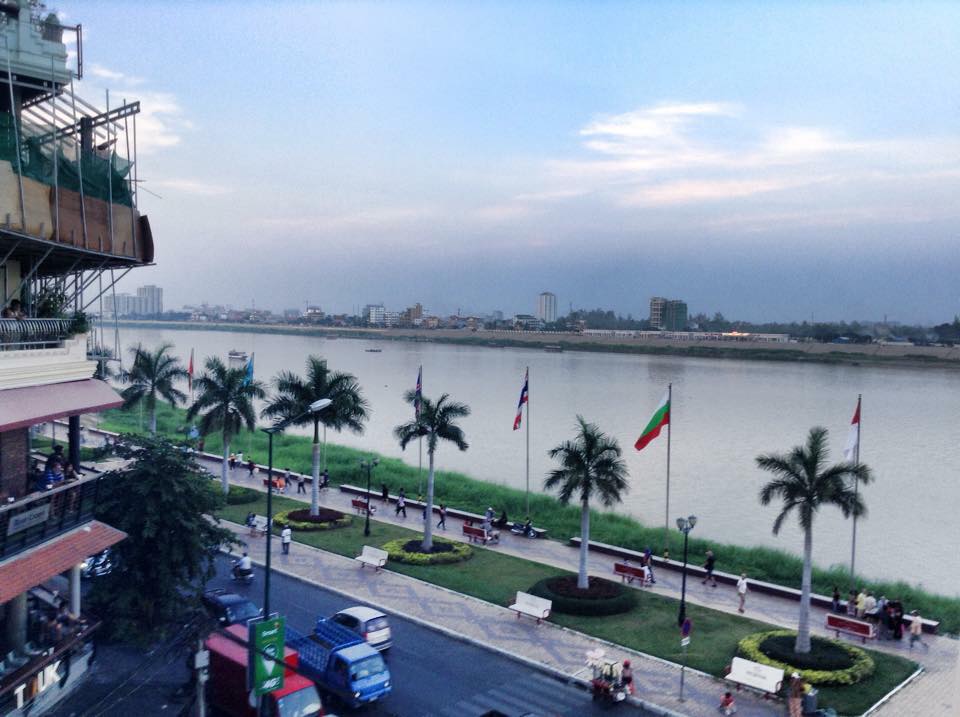
Photo by: Hannah Reid
SEVEN: There are ulterior motives around every corner
Another IVHQ guideline is that the childcare provider should always maintain and support the child’s right to choose their religion. 95% of Cambodians are Buddhist and Buddhism is firmly entrenched in their communities and culture.
It concerned me that most of the placements volunteers were assigned to were Christian orphanages, funded by Christian churches overseas. I googled the websites of some of the placements volunteers told me they were assigned and their mission statements specified their mission to raise children by the word of God in a Christian environment.
These websites were for Missionaries of Charity in Siem Reap and Child Rescue Centre in Kompgn Chhnang province. I recently tried to find the websites, but both have now disappeared. I should note that orphanages in Cambodia are constantly opening, shutting down or changing name. Some of the orphanages and their websites have changed since I was volunteering in Cambodia with IVHQ in December 2014.
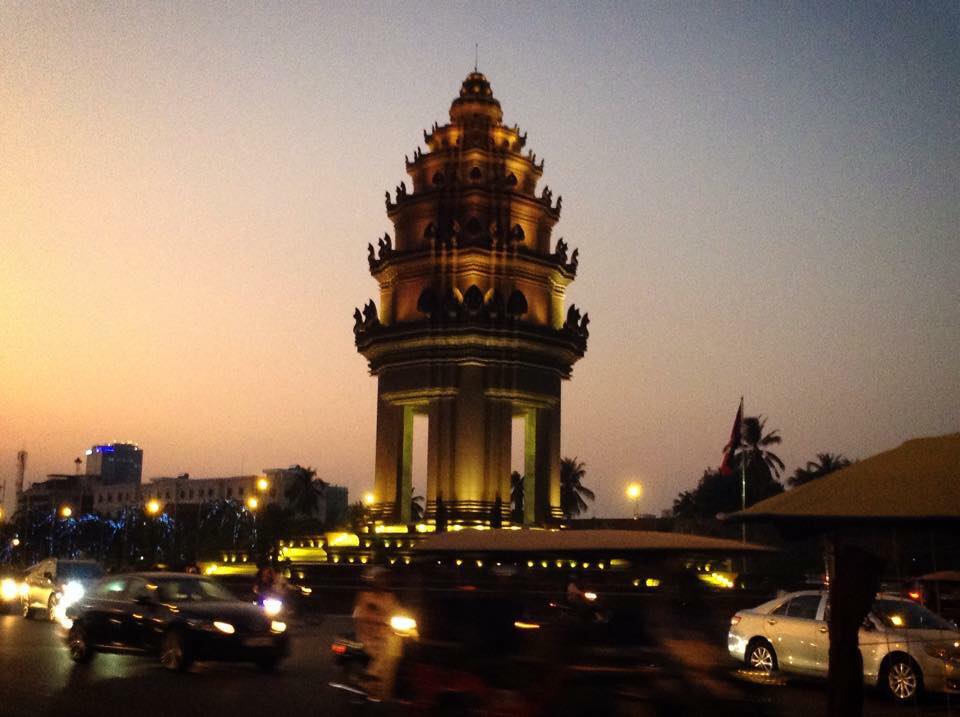
Photo by: Hannah Reid
These “childcare” placements are converting children to a religion different to their own, and different to the religion of their families and communities.
A couple of the volunteers distributed necklaces with wooden crosses to the children at one placement. This kind of environment fundamentally impairs the freedom of the children to associate with their religion, or any religion that is not Christianity.
Why are these children, who still have families, being separated from their families, communities, culture and religion? Is it so that orphanage directors, tour-guides and large voluntourism companies can profit from this separation? Is it so that churches can convert children to a new religion?
EIGHT: Expressions of concern to IVHQ about the well-being of vulnerable children will be stifled in the interests of profits
After just one week, I had all the information I needed to make the decision to leave Cambodia. My eight-week NGO internship was cut to just one week. I was convinced that IVHQ either had no idea what actually happened in their placements in Cambodia, or had some idea but did nothing to fix the problems.
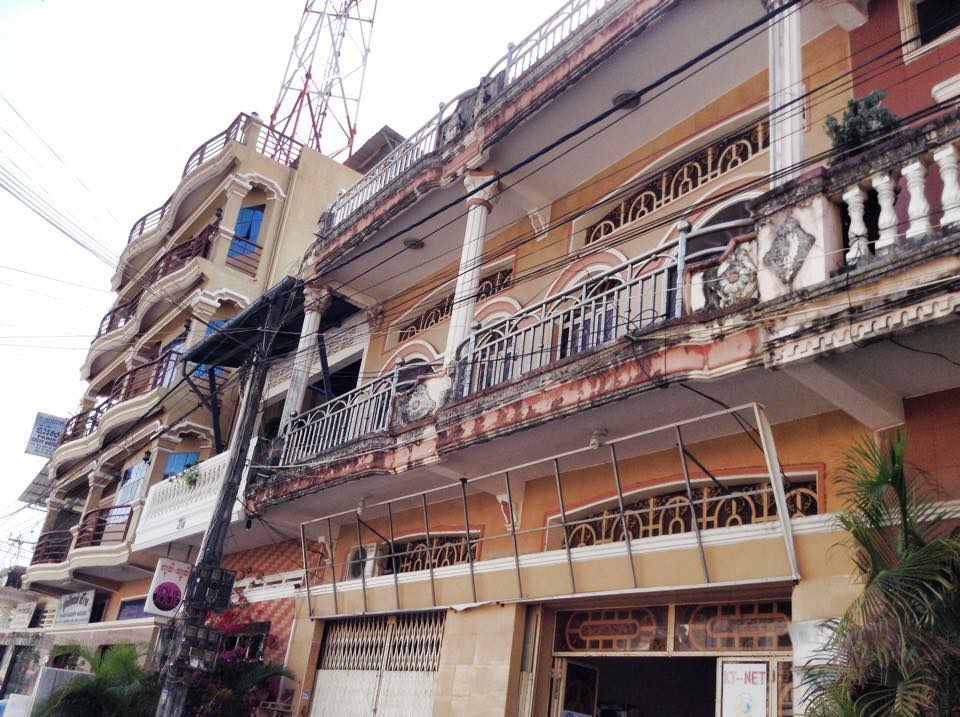
Photo by: Hannah Reid
I sent a letter to IVHQ outlining my concerns with the organisation’s lack of transparency, the lack of auditing of individual placements and some of the broader problems surrounding sending unqualified young people to work with vulnerable and at-risk people. I spoke with IVHQ’s Ben Brown over the phone, who initially seemed surprised and concerned about my experience and suggested I may get a full refund from IVHQ. A few days later, I received an email from him simply offering a waiver of the registration fee the next time I decided to book a trip with IVHQ. How generous.
On 5 March 2015, the director of Our Home Orphanage in Phnom Penh, named Vibol, was arrested on 9 charges of sexually abusing the children in his care. The abuse allegedly took place in 2013 and 2014. Vibol was convicted for abusing 11 children in his care at Our Home. When I heard this news, I instantly recognised Our Home as being an IVHQ placement.
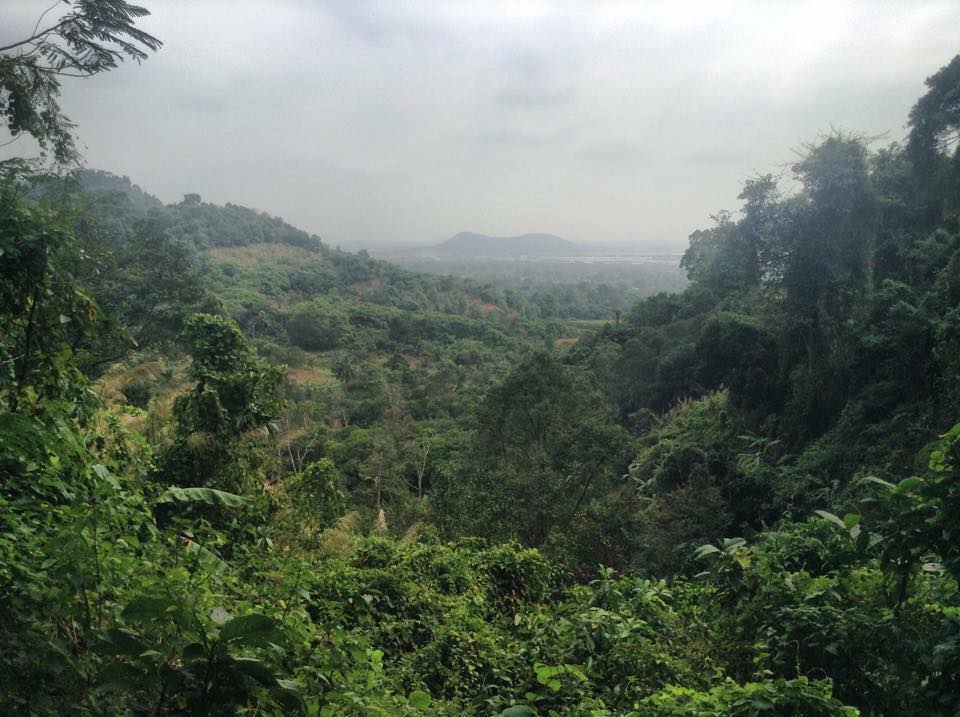
IVHQ sent volunteers to Our Home throughout 2013 and 2014. A video on the official IVHQ YouTube channel featured Our Home as a potential placement for prospective volunteers. I contacted the volunteer who made the video for IVHQ, who informed me that he had been suspicious of the Our Home orphanage and believed the director, Vibol, was eliciting money from volunteers to turn the orphanage into an apartment complex. Despite Vibol’s arrest and the shut-down of Our Home in March 2015, the IVHQ video about Our Home remained on YouTube until IVHQ removed it sometime in late 2016.
This begs the question: If volunteers were sent to Our Home over the time period of the abuse and volunteers were suspicious of the placement, how reliable and comprehensive are the auditing of placements in Cambodia by IVHQ?
I have since received messages from volunteers all over the world who had problems with their placements either in Cambodia or other countries. It is common to hear about volunteers cutting their trips short and having serious concerns about their placements.
I have become increasingly concerned with the way IVHQ responds to the feedback given by volunteers. IVHQ eventually stopped responding to my emails and never gave me any concrete assurance or evidence that anything was done about my complaints regarding placements in Cambodia.
I occasionally tried posting on the IVHQ Volunteers group and the IVHQ Cambodia Volunteers group on Facebook. My posts were general, warning prospective volunteers to ask for details about their placements in-advance to booking a trip with IVHQ and asking if any former volunteers had concerns about their placements. My posts in both Facebook groups were deleted and I was blocked from both groups.
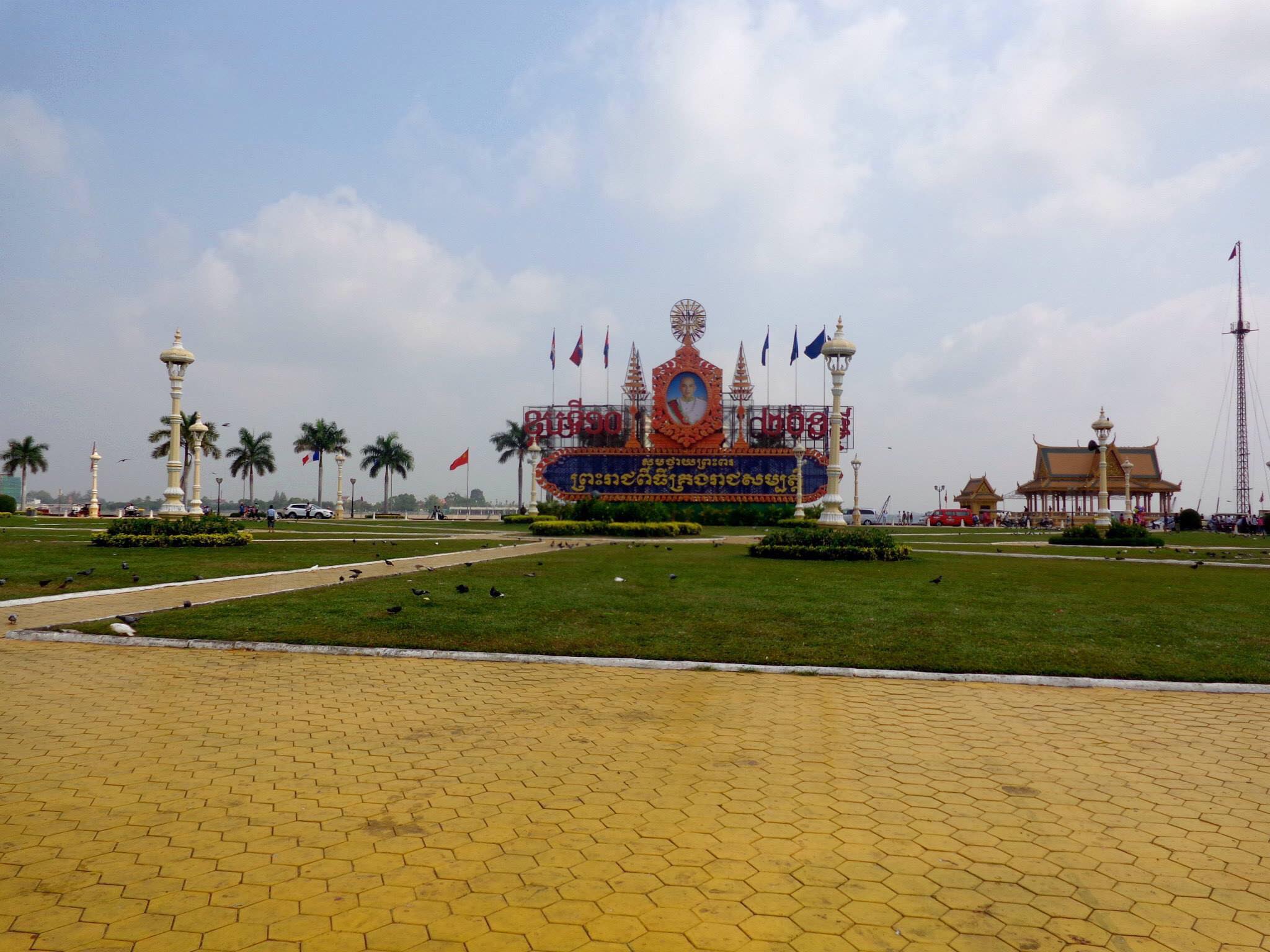
Photo by: Hannah Reid
I have noticed that any post critical of IVHQ experiences on the IVHQ Facebook page or IVHQ Facebook groups are deleted within a few hours or days. It is common for negative or critical posts, or posts describing a volunteer’s concerns, to be removed and the volunteer to be blocked from posting anything or even accessing the Facebook group.
NINE: Volunteering/interning abroad as a “voluntourist” does no favours for your CV
Since my experience with IVHQ, I have done a lot of reflecting and research. The kind of reflecting and research I should have done before I got on the plane to go to Cambodia.
When I educated myself on the issues surrounding voluntourism, the perpetuation of the cycle of poverty, the problematic suggestion that vulnerable people and communities are there as tourist attractions or to make ourselves feel better, the often colonial undertones to many voluntourism programs and the substantial profits that are being made on all levels based on sustaining poverty levels and exploiting the otherwise good intentions of young traveller, I changed my CV. I removed all mentions of volunteering or interning in Cambodia, both from my experiences in 2013 and 2014. The tide is turning and new waves of activism are seeing more people informed of the harms of voluntourism.
Australia’s Modern Slavery Act is addressing the problem head on. The United Nations is paying more attention to issues surrounding responsible tourism. Bloggers and social media activists are drawing attention to the larger problems surrounding voluntourism.
I now work as a lawyer, prosecuting serious crime in Auckland, New Zealand. I got the job with a CV free from any mentions of volunteering abroad. I suggest to university students everywhere that before volunteering or interning abroad, you reflect on your reasons for doing so, you research the organisations involved at every level, you ask yourself whether you would be qualified to undertake the position in your home country, you consider the optics of being in these cultures and communities as a volunteer, you educate yourself about cycles of poverty and the meaning of sustainable development, and you read the ten lessons listed in this blog post.
If you would like to contact me with any questions or requests for further information, please email me at reid.hannah@gmail.com
